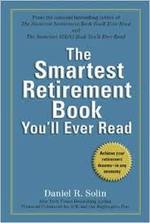Clik here to view.

Dear Ms. Whitney,
I want to congratulate you on your return to the business of managing money. I understand you will be managing an equity portfolio for a Bermuda-based insurer, Arch Capital Group Ltd.
Your responsibilities will be significant. You will be managing a portfolio of approximately $800 million. Your job will be to "manage the managers" who invest this money. They are reported to include JPMorgan Chase & Co. and BlackRock.
Some might think you are an odd choice for this role. Personally, I think it was brilliant. Let me explain why.
I fully understand you have experienced both highs and lows. A high point was obviously your brilliant call prior to the financial crisis that Citigroup would cut its dividend. You became a rock star in the staid world of investing. Many believed you had the mojo to forecast the future with reliable accuracy. I think you now know better.
I am not sure where to start when it comes to a low point. Was it your Dec. 19, 2010 appearance on 60 Minutes in which you predicted "hundreds of billions of dollars" of municipal bond defaults, triggering a wave of panic selling? These defaults, of course, never happened. That was a doozy.
The recent debacle with your hedge fund was messy, but it didn't affect nearly as many investors as the almost comically wrong forecast regarding municipal bonds. Your fund didn't perform well due to another faulty prediction. This time it involved heartland stocks. According to The Wall Street Journal, you believed the "central U.S. would prosper while the coasts struggle."
Given this mixed track record, why do I applaud Arch Capital Group for making the bold decision to hire you?
It was a no-brainer.
From your own experience, you must realize that no one has the expertise to reliably predict the direction of the market, pick outperforming stocks or select mutual fund managers likely to outperform their benchmarks, especially over the long term. That knowledge will be critical in your new position.
As mentioned previously, JPMorgan Chase is one of the fund managers you inherited. Have you seen this analysis by my colleague, Larry Swedroe? It covered the 15-year period from April 2000 through March 2015. Swedroe compared the performance of 22 of the firm's mutual funds in 12 asset classes with passively managed alternatives. You can read the analysis in a few minutes, but here's his bottom line:
"JPMorgan Chase didn't add value relative to the performance of either the DFA or Vanguard alternatives. And that's before considering the important issues of survivorship bias and, for taxable investors, taxes. In terms of the factor analysis, there wasn't much, if any, evidence that JPMorgan Chase's fund managers persistently exploited market inefficiencies."
The entire process of "managing managers" is flawed. But you know that. Just take a look at this peer-reviewed study. It examined the performance of retirement plans, foundations and endowments for the period from 1994 to 2003. The boards of these plans "managed managers" much the same way you are being tasked to do, firing poor performers and hiring top performers. The dataset consisted of 8,755 hiring decisions over this 10-year period.
Three years prior to hiring, the investment managers generated average annualized excess returns of 2.91 percent. Three years after hiring, they underperformed their benchmark by an average of 0.47 percent.
It gets worse. The study found that if plan managers had kept the fund managers they fired, their excess returns would have been superior to those earned by the newly hired managers.
You understand the diminishing odds of an actively managed portfolio beating the returns of a passively managed one. If you want more support, check out the data in this article in The Wall Street Journal.
"Managing the managers" will be a piece of cake for you. I'm confident you will simply fire all the active managers and invest the portfolio entrusted to you solely in low-cost index funds, exchange-traded funds and passively managed mutual funds. Clearly, you're too smart -- and too experienced -- to continue the current charade.
That's why I applaud Arch Capital Group for taking a chance on you. It wasn't really a risky move at all.
Best of luck,
Dan Solin
Image may be NSFW.
Clik here to view.
 Dan Solin is a New York Times bestselling author of the Smartest series of books, including The Smartest Investment Book You'll Ever Read, The Smartest Retirement Book You'll Ever Read and his latest, The Smartest Sales Book You'll Ever Read.
Dan Solin is a New York Times bestselling author of the Smartest series of books, including The Smartest Investment Book You'll Ever Read, The Smartest Retirement Book You'll Ever Read and his latest, The Smartest Sales Book You'll Ever Read.The views of the author are his alone and may not represent the views of his affiliated firms. Any data, information and content on this blog is for information purposes only and should not be construed as an offer of advisory services.
-- This feed and its contents are the property of The Huffington Post, and use is subject to our terms. It may be used for personal consumption, but may not be distributed on a website.
Image may be NSFW.
Clik here to view.
Image may be NSFW.
Clik here to view.
Image may be NSFW.
Clik here to view.
Image may be NSFW.
Clik here to view.
Image may be NSFW.
Clik here to view.
Clik here to view.
Clik here to view.
Clik here to view.
